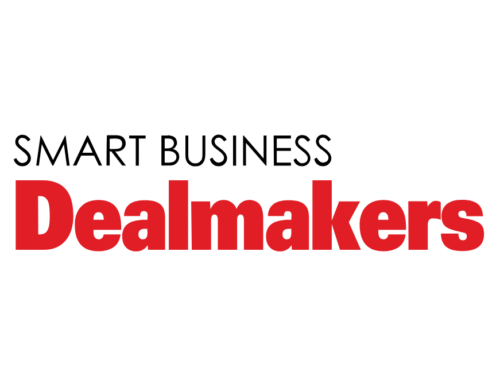COVID-19: forbearance and debt repayment Relief. If you’ve lost income due to the coronavirus pandemic there may be options to temporarily reduce or stop loan repayments.
Millions of people across America are now facing unexpected financial difficulties due to the Coronavirus/COVID-19 pandemic, and many are finding it hard to stay on top of their bills, such as rent, utilities, cell phone service and student loans.
In the five weeks since the pandemic shutdown reached its full height in mid-March, more than 26 million Americans have applied for unemployment benefits. That number accounts for the significant number of people experiencing temporary or permanent unemployment.
If you are one of the many who have lost their jobs, been furloughed or experienced a pay cut due to the COVID-19 pandemic, you have a variety of debt repayment options available to you through your lenders and creditors. One option may be forbearance (also known as deferred payments), which is an agreement with a lender or credit allowing the borrower to postpone or stop loan payments for an agreed-upon duration of time.
Are My Debts Eligible for Forbearance? What Does It Mean If They Are?
When most people use the term “forbearance,” it’s often linked to home mortgages, but any lending agreement you’ve entered into may be eligible for deferred or suspended payments.
The drastic and sudden economic impact of the COVID-19 pandemic has led many creditors and lenders to offer special repayment options on a multitude of debts. This includes mortgage payments, student loans, auto loans, credit card balances, utilities, property taxes and small business loans, though this list is not all-encompassing.
Your lenders and creditors may agree to allow decreased or delayed payments for a specific time period up to 12 months, depending on the deal you strike with them. They might also offer to reduce the interest rate you’re being charged on your debt, though there are no federal guidelines outlining detailed terms for forbearance agreements, so your options may differ.
If You Need Specific Info on Eligibility for Your Debts, Talk to Your Lender or Creditor
For forbearance agreements during the COVID-19 pandemic, each lender and creditor has created their own programs and rules. Eligibility for those programs depends on your particular lender or creditor. To learn more about setting up forbearance or about the other options available to you, including options outside of forbearance, contact your lender or creditor directly.
Importantly, you cannot simply miss a payment and expect to be off scot-free without communicating with your lender about your situation. Your credit standing could be compromised unless you work out a deal with your lender before stopping payment.
Forbearance may help you deal with your short-term financial difficulties and assist you in getting back on your feet, but it doesn’t come without its drawbacks. If you enter into a forbearance agreement, you’re not getting a gift or “free money. You may still need to repay interest that accrues during your approved deferral period, and late fees might still apply, depending on your agreement with your lender or creditor. Ask them directly if you have more questions on how and when any fees may be applied, and how they will report your forbearance agreement to the nationwide credit reporting agencies.
How Do Forbearance or Deferred Payments Work for Different Types of Debts?
If you’re currently facing financial hardship due to a layoff, furlough or pay cut, reach out to your lender or credit to learn more about their options for debt repayment programs and whether you’re eligible. The following details some of the special forbearance arrangements that have been prescribed by the Coronavirus Aid, Relief, and Economic Security (CARES) Act for different scenarios you may be facing now:
-
Mortgages
Fortunately for people who are struggling to keep up with mortgage payments, federal officials have announced a temporary nationwide halt to foreclosures and evictions for federally-backed mortgages. People who have suffered a loss of income due to the COVID-19 pandemic can qualify to reduce or suspend payments for up to 180 days, with specifics depending on their particular situation.
Borrowers whose mortgage loans are backed by Fannie Mae or Freddie Mac, which underpin the majority of loans in the United States, or by the U.S. Department of Veterans Affairs (VA), the Federal Housing Administration (FHA) or the USDA are eligible for help, including options for forbearance and delayed payments. You must contact your loan servicer to request this forbearance.
To combat ongoing misinformation, the Federal Housing Finance Agency reiterated at the end of April that borrowers in forbearance with a federally-backed mortgage are not required to repay the missed payments in one lump sum. Your mortgage servicer will contact you about 30-days before the end of the forbearance plan to see if the financial hardship has been resolved and discuss your repayment options.
You can search for your loan on the FannieMae.com and FreddieMac.com websites to determine whether one of them has purchased your loan from your original lender or call your mortgage servicer directly. In addition, Fannie Mae and Freddie Mac have halted foreclosures and evictions during the Coronavirus/COVID-19 pandemic, so visit their websites for regularly updated information on how to get relief.
If your loan is not federally backed, you will have to call your mortgage servicer to find out whether they offer any COVID-19 pandemic relief. Review your monthly statement or visit your mortgage servicer’s website for information on how to contact a customer service agent.
If you’re a homeowner who doesn’t know what company backs your mortgage, you can find more information about the federal foreclosure and eviction moratorium and related Coronavirus/COVID-19 actions on the U.S. Department of Housing and Urban Development website.
-
Student Loans
For most federally held student loans, payments and interest are automatically suspended through September 30, 2020, though that date may be extended with additional legislation. You do not need to take any action for this to take effect.
However, some student loans do not qualify for this benefit, including loans under the Federal Family Education Loan (FFEL) Program, private student loans that are owned by commercial lenders and some Perkins Loans that are held by the institution you attended. To request a forbearance agreement or delayed payments on these loans, contact your loan servicer.
(And remember: If you find yourself with additional cash and are able to continue making your payments, even though none are required for the time being, you’ll chip away at your debt and better position yourself for financial security after the COVID-19 pandemic is behind us.)
-
Auto Loans
A significant number of auto lenders are offering forbearance agreements or deferred payment plans during the pandemic. This includes options for existing customers as well as those looking to purchase a new vehicle. Contact your lender or automobile manufacturer to learn more about their specific deals.
-
Credit Cards
Every credit card company has different options and eligibility requirements for forbearance or payment deferrals on your credit card debt. Some may allow you to defer payments while interest continues to accrue over a set period of time, while others may offer to reduce your interest rate or principal payments temporarily. Go to your credit card issuer’s website to learn what options are available and what you have to do to get help. Even if your credit card company isn’t offering a plan that works for you today, it might add new options in the near future, so check back frequently for updates.
-
Utilities and Property Taxes
Many cities and states across America are offering relief options for utility bills and property taxes to those impacted by the COVID-19 pandemic. This may include forbearance or deferred payments. Call your local municipality or utility provider for details.
-
Small Business Loans
The federal government has committed a significant amount of disaster relief money to small business owners who have been impacted by the COVID-19 pandemic. The original CARES Act included a provision called the Paycheck Protection Program, which provided small business loans that are fully forgivable in many circumstances, making the money similar to a grant. Businesses have to apply for the loan, which was designed to cover about two months of payroll expenses. Although the initial tranche of money has run out, Congress recently passed another bill with hundreds of billions of dollars in additional funding for small business loans.
If you are a struggling business owner, the Paycheck Protection Program may give you an alternative to requesting forbearance or deferred payments, and buy you some time to get back on your feet. Read more about small business relief options at the U.S. Small Business Administration website.
This information may change as the COVID-19 pandemic evolves, and we’ll continue to provide up to date information as it does.
More on Topics Related to COVID-19: Forbearance and Debt Repayment Relief
CARES Act: 4 Key Pieces for You
Coronavirus/COVID-19: Where to Get Help
How COVID-19 Impacts Your Student Loans





